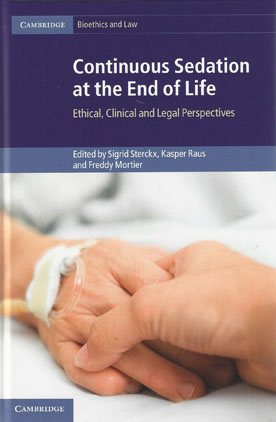
Continuous sedation until death (sometimes referred to as terminal sedation or palliative sedation) is an increasingly common practice in end-of-life care.
However, it raises numerous medical, ethical, emotional and legal concerns, such as the reducing or removing of consciousness (and thus potentially causing 'subjective death'), the withholding of artificial nutrition and hydration, the proportionality of the sedation to the symptoms, its adequacy in actually relieving symptoms rather than simply giving onlookers the impression that the patient is undergoing a painless 'natural' death, and the perception that it may be functionally equivalent to euthanasia.
This book brings together contributions from clinicians, ethicists, lawyers and social scientists, and discusses guidelines as well as clinical, emotional and legal aspects of the practice. The chapters shine a critical spotlight on areas of concern and on the validity of the justifications given for the practice, including in particular the doctrine of double effect.